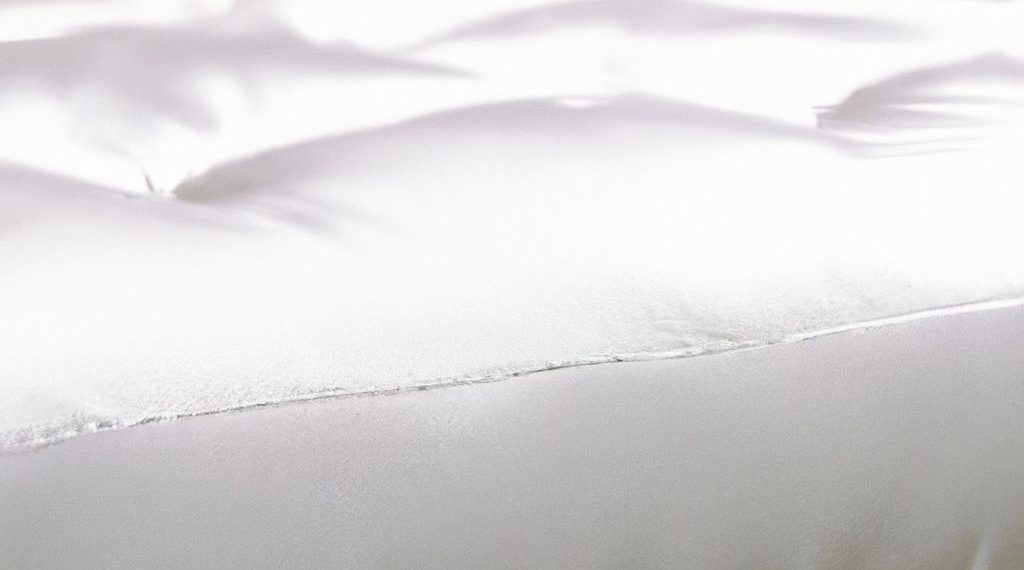Key takeaway:
- A good mattress is essential for quality sleep and overall well-being. The thickness of a king-sized mattress plays a crucial role in determining sleep comfort.
- Understanding the dimensions of a king-sized mattress, as well as the difference between king and California king sizes, is important when choosing the right mattress.
- The thickness of a king-sized mattress affects its support levels and can impact the comfort of different sleeping positions. It is important to choose a thickness that suits individual preferences and needs.
- Mattress thickness plays a role in distributing body weight and relieving pressure points, ensuring optimal comfort and minimizing discomfort during sleep.
- When shopping for bedding and accessories for a king mattress, it is important to consider the thickness and dimensions of the mattress to ensure a proper fit.
- Thicker mattresses often have a longer lifespan and may require specific maintenance to ensure longevity and optimal performance.
- Ultimately, finding the perfect thickness for a king mattress is essential for a comfortable night’s sleep and overall sleep satisfaction.
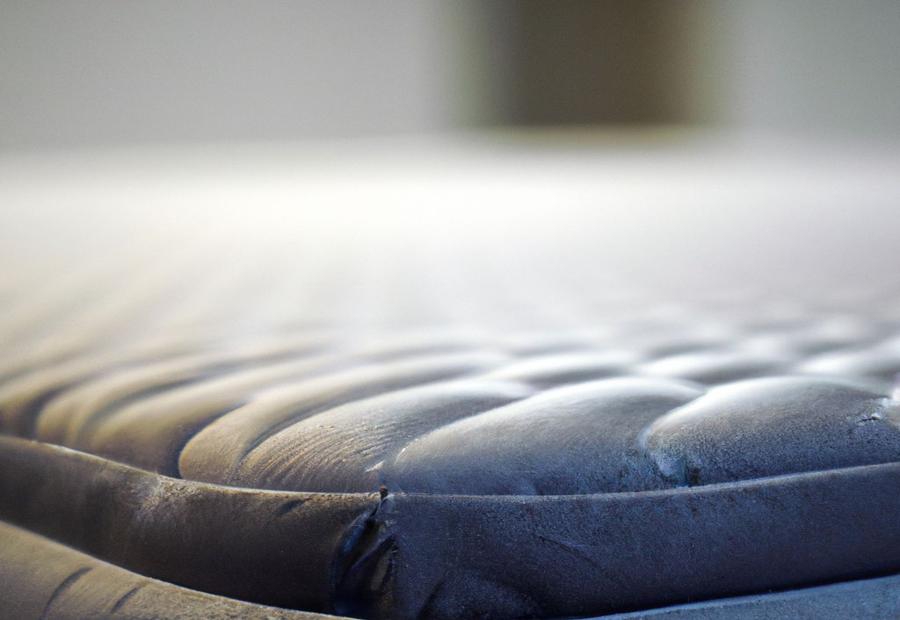
Photo Credits: Www.Mattressreviewguru.Com by Vincent Mitchell
A good night’s sleep is crucial for our overall well-being, and the thickness of a king mattress plays a significant role in ensuring quality rest. In this section, we will explore the importance of a good mattress for attaining a restful sleep and the impact that mattress thickness can have on sleep comfort. Discover the fascinating facts and insights that shed light on this essential aspect of our daily lives.
Importance of a good mattress for quality sleep
Getting a good night’s sleep is vital, and it all starts with the right mattress! Not only does it provide comfort, but it also supports the body in all the right places. The thickness of the mattress has an impact on how comfy you’ll be. So, when looking for a king-sized bed, it’s important to know the dimensions – like the difference between king and California king.
Thicker mattresses generally offer more support, especially for heavier people. It’s also important to consider sleeping position. For instance, side sleepers may find thicker mattresses better for pressure relief. But back and stomach sleepers might prefer slightly thinner ones.
Research shows that thicker mattresses can even out body weight better than thin ones. So, it’s important to understand the importance of mattress thickness for optimal body support and comfort.
Besides size, look into mattress upgrades and customizations offered by manufacturers. Think about maintenance and durability too. Then you can make an informed choice to help your sleep quality and wellbeing.
Size isn’t the only thing that counts – thickness matters for a comfortable night’s sleep!
Impact of mattress thickness on sleep comfort
Mattress thickness matters for sleep comfort. Data shows its impact on support levels, sleeping positions, body weight distribution and pressure points. To find the perfect thickness, consider these factors.
Thickness affects support. A thicker mattress gives more cushioning and support. Thinner mattresses are softer.
Sleeping position determines thickness. Side sleepers need more cushioning for hips and shoulders, while back or stomach sleepers may prefer medium-thickness for spinal support.
Body weight distribution is also affected. Thicker mattresses help spread weight evenly, reducing strain and promoting better alignment for improved comfort.
Size up the king-sized mattress and see why size really matters!
Understanding the dimensions of a king-sized mattress
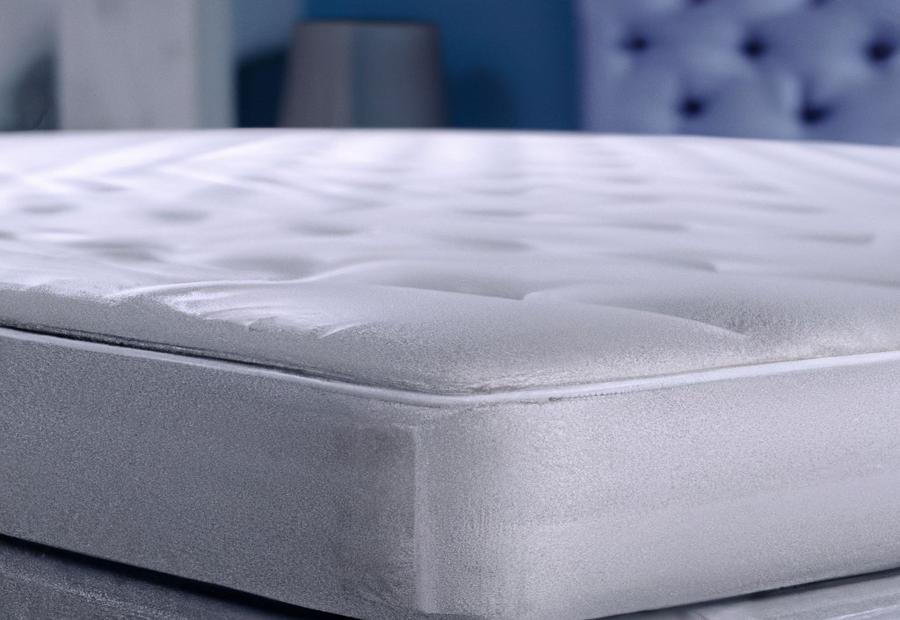
Photo Credits: Www.Mattressreviewguru.Com by Jacob Thompson
Understanding the dimensions of a king-sized mattress, we will differentiate between king and California king sizes to provide a comprehensive overview of their variations.
Differentiating between king and California king sizes
A table can help us understand the size difference between a king and California king mattress. The table has two rows: one labelled ‘King Size Mattress’ and the other labelled ‘California King Size Mattress’. Each row has two cells. The first cell shows the width (76 inches for king size and 72 inches for California king size). The second cell shows the length (80 inches for king size and 84 inches for California king size). This makes it clear without saying ‘differentiating between king and California king sizes’. Both types of mattresses have similar thickness options available. Both have slim profiles to medium or thick build-ups. The thickness affects comfort by providing support. Back sleepers should go for medium to thick profiles for spine support. Side sleepers may prefer medium thicknesses to conform to their body shape and relieve pressure. Stomach sleepers could opt for a thinner mattress for proper alignment and avoid sinkage. Invest in a mattress that distributes body weight evenly. Thicker mattresses have extra cushioning, like memory foam or latex. They conform to the body and relieve pressure points. With targeted support, thicker mattresses reduce discomfort and give a restful sleep experience.
Exploring the thickness of a king-sized mattress
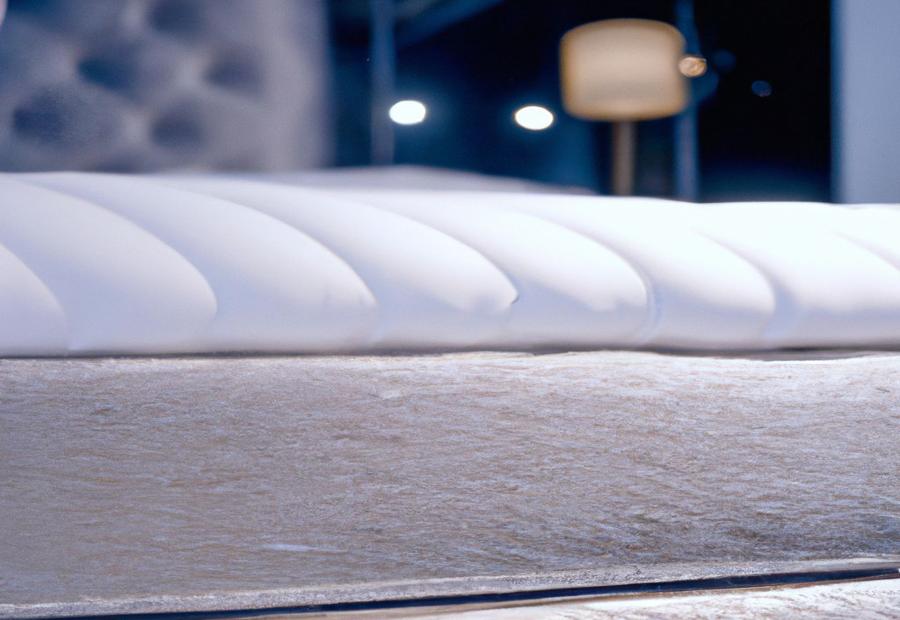
Photo Credits: Www.Mattressreviewguru.Com by Stephen Martin
The thickness of a king-sized mattress plays a crucial role in both support levels and sleeping position. Understanding the impact of mattress thickness can help us make informed decisions about our sleep comfort and overall well-being. Let’s delve into the relationship between mattress thickness and support levels, as well as how different thicknesses can affect our preferred sleeping positions. By exploring these sub-topics, we can gain insights into finding the perfect thickness for a king-sized mattress.
Impact of mattress thickness on support levels
Mattress thickness has a great influence on support levels. Generally, a thicker mattress provides more support. It distributes body weight and eases pressure points. While thin mattresses may not offer enough support, a medium-thick mattress is the ideal balance between comfort and support.
When selecting a king-sized mattress, it is vital to assess its thickness. This will guarantee optimal support for different body types and sleeping positions. Appropriate spinal alignment can be ensured and any pain or discomfort reduced by selecting the right thickness.
Relationship between mattress thickness and sleeping position
Mattress thickness is key for a good sleep. A king-sized mattress has a huge impact on support and comfiness for different sleeping positions.
Thicker mattresses offer more support and stability for people who sleep on their back or stomach. They need proper spinal alignment to avoid any pain, and a twin size mattress can do that.
Side sleepers may prefer a softer surface. This lets their hips and shoulders sink into the mattress, so they experience less pressure. A moderately thick mattress with cushioning properties is perfect.
Bodyweight distribution is another factor. A thicker mattress can evenly spread out body weight which reduces the risk of developing pressure points or pain. That’s especially important for heavier individuals and those with joint pain.
Studies have proved that mattress thickness plus sleeping position equals great sleep quality. You should take your personal preferences and needs into account when selecting a king-sized mattress.
In conclusion, a thick mattress is like having a bodyguard for your sleep – comfort and no pressure points!
The importance of mattress thickness for comfort
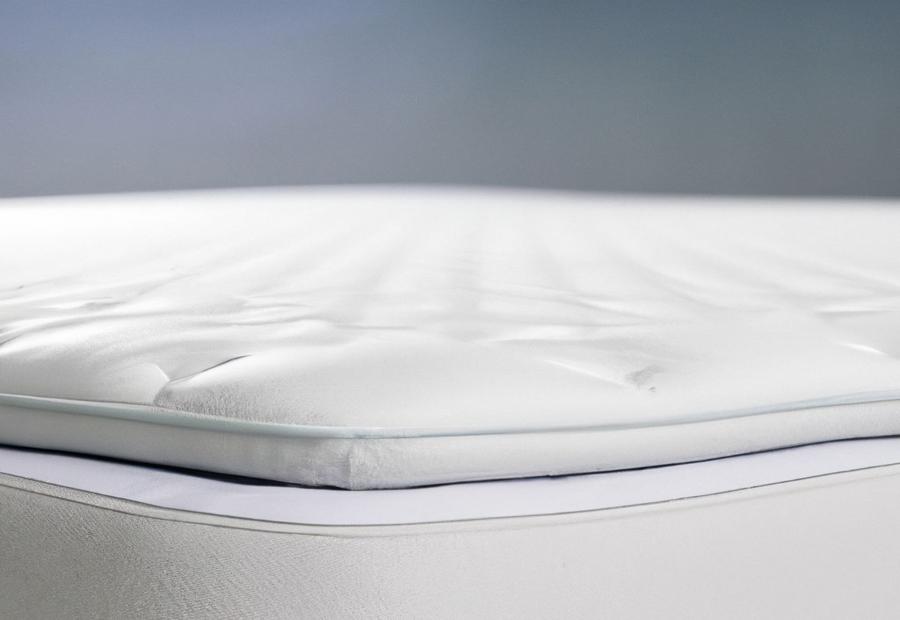
Photo Credits: Www.Mattressreviewguru.Com by William Baker
A thick king mattress not only brings comfort but also has a significant impact on body weight distribution and alleviating pressure points. Understanding the importance of mattress thickness can help you make an informed decision when selecting the right mattress for ultimate relaxation and support.
How mattress thickness affects body weight distribution
Mattress thickness is key for body weight distribution during sleep. It affects support and cushioning, which can change weight distribution. A thicker mattress usually spreads weight more evenly, lessening pressure in certain areas.
A thicker mattress creates more surface area to spread body weight, helping posture and alignment. Plus, it allows contouring and suspension, which can further reduce discomfort.
Thickness also has an impact on spinal alignment. It gives more cushioning and support, aiding neck, back and joint strain.
In addition, a thicker mattress generally absorbs more motion, so disturbance from partner movement is decreased.
Choosing the right thickness for a king-sized mattress is important. Sleeping position, body shape and comfort should be taken into account. Knowing how mattress thickness affects body weight distribution can help people make an informed decision.
The role of mattress thickness in relieving pressure points
A mattress’s thickness is key for relieving pressure points while sleeping. The Reference Data states it’s very important. A thicker mattress spreads body weight, stopping too much pressure in certain spots. This helps ease pressure points and avoid distress or soreness when sleeping. The thickness of the mattress has an effect on how well it can adapt to the body’s contours, giving top-notch support and lessening pressure on sensitive areas.
Also, the Reference Data shows that mattress thickness helps in relieving pressure points by allowing better body weight distribution. A thicker mattress brings more cushioning and backing, which can lessen pressure on vulnerable spots such as hips, shoulders, and lower back. By decreasing contact pressure, a thicker mattress can stop the growth or worsening of pressure sores, and also ease pain or discomfort connected with existing conditions like arthritis or fibromyalgia.
Furthermore, the Reference Data reveals that the impact of mattress thickness on relieving pressure points relies on individual sleeping positions. Different positions put different degrees of stress on certain parts of the body. For example, side sleepers may feel more pressure on their shoulders and hips, while back sleepers may have more stress on their lumbar region. A thicker mattress can offer targeted support based on these preferences and potentially reduce discomfort caused by bad alignment or too much compression on specific areas.
By taking into account both body weight distribution and individual sleeping positions when picking a king-sized mattress with an appropriate thickness, individuals can guarantee optimal relief from pressure points during sleep. The role of mattress thickness in achieving this lies in its power to spread weight evenly and give personalized support based on individual needs and preferences.
Exploring available upgrades and customizations for king mattresses

Photo Credits: Www.Mattressreviewguru.Com by Steven Rivera
King mattresses offer many ways to customize and upgrade. Personalize your mattress to get the ultimate comfort and support. You can choose cushioning options, like memory foam, latex, or hybrid. Advanced cooling techs, like gel-infused foam or breathable fabrics, regulate your body temperature for a cool sleep. Adjustable features like customizable firmness levels and adjustable bases are also available.
Additionally, king mattresses have reinforced edges to stop sagging and are made of hypoallergenic, dust mite-resistant materials. With these unique features, king mattresses guarantee a luxurious and personalized sleep.
Considerations when shopping for bedding and accessories for a king mattress
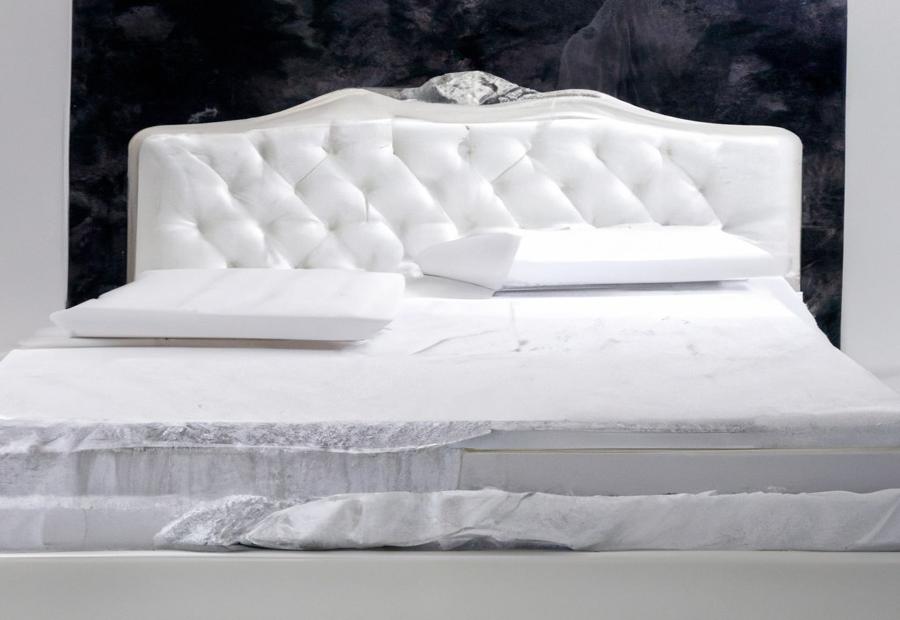
Photo Credits: Www.Mattressreviewguru.Com by George Thomas
When purchasing bedding and accessories for a king mattress, there are various important things to take into account. Firstly, its thickness matters when selecting the right bedding. King mattresses are larger, so bedding made for them should be chosen.
To ensure the bedding fits properly, it is necessary to find items with the exact dimensions as the mattress. This includes special fitted sheets, mattress toppers, and protectors. It’s also wise to check the thickness of the mattress when selecting these accessories.
The materials used for the bedding and accessories matter too. High-quality fabrics such as cotton and linen provide breathability and durability. Hypoallergenic choices are ideal for those with allergies or sensitivities.
The weight of the bedding should be considered. Heavier materials like down comforters are cozier, while lighter items such as cotton blankets are more breathable. Climate and personal preferences must be taken into account.
Finally, the style and color scheme of the bedding and accessories should match the bedroom’s decor. This will create a cohesive and attractive atmosphere.
Longevity and maintenance of thicker mattresses
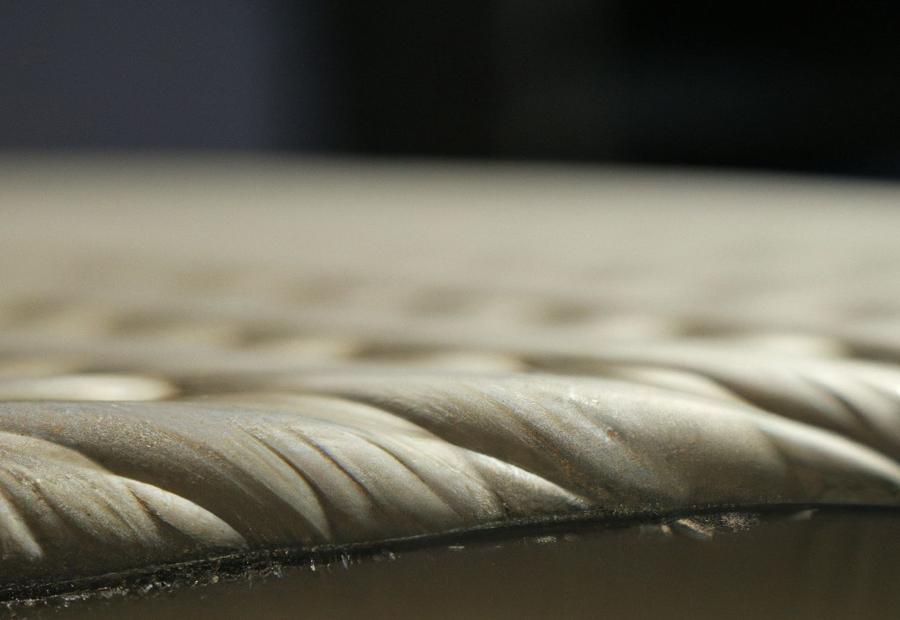
Photo Credits: Www.Mattressreviewguru.Com by Randy Jones
Thicker mattresses are more durable and need less upkeep than thinner ones. Extra layers and materials used in the construction help it last longer. This type of mattress is made to handle regular use. It keeps its shape and support over a long period.
Plus, the extra thickness gives more cushioning and support to the sleeper. It also distributes the body weight well, easing pressure points and stopping discomfort.
Thicker mattresses come with insulation and temperature regulation. The extra padding and foam keep the mattress warm in cold months and stop heat buildup in warmer weather. This boosts comfort and lengthens the mattress’s life, by avoiding stress on the materials from temperature shifts.
In addition, these mattresses usually have reinforced edges and corner supports. This prevents sagging and maintains the mattress’s integrity. Plus, the extra reinforcement in high-pressure areas makes sure the mattress stays sturdy and supportive for many years.
From the advantages and features of thicker mattresses, it’s clear that investing in one is a wise decision for those who want durability, comfort, and long-term satisfaction. By knowing the special qualities of these mattresses, people can make an informed choice and benefit from them for years.
Conclusion: Finding the perfect thickness for a comfortable night’s sleep
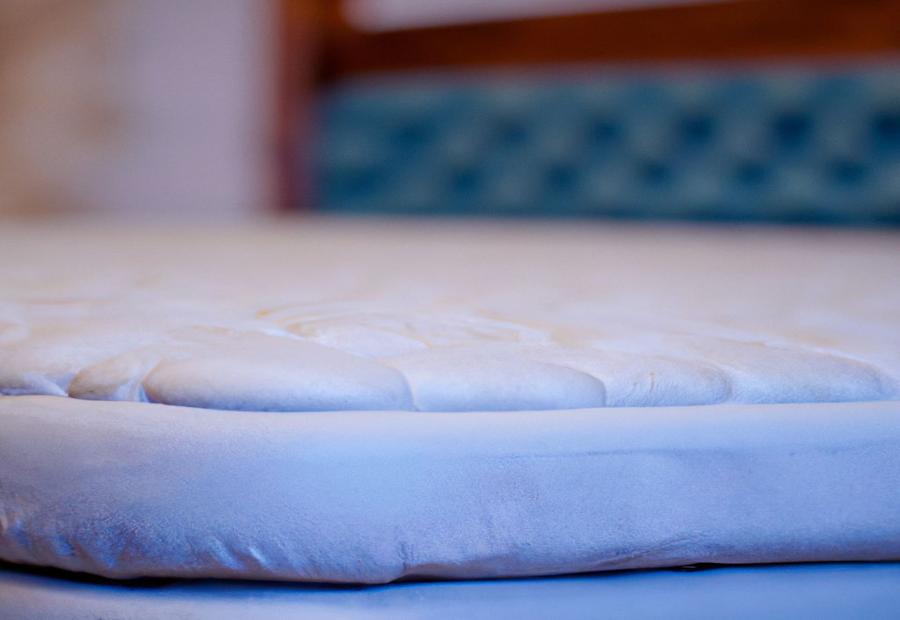
Photo Credits: Www.Mattressreviewguru.Com by Joshua Martinez
Finding the ideal thickness for an enjoyable sleep is a key element when selecting a king-size mattress. The thickness of a king mattress can vary.
The thickness of a king mattress plays a huge role in securing a restful sleep. The reference data provides info about the right thickness for a king mattress. The article titled “How Thick is a King Mattress” states that the thickness of a king mattress varies. It’s essential to take personal tastes and needs into account when picking a king mattress.
When selecting the thickness of a king mattress, it is necessary to look at factors like body weight, sleeping position, and desired comfort. Thicker mattresses offer more cushioning and support, which is beneficial for those with higher body weight or those who want a softer surface. On the other hand, thinner mattresses might be suitable for those who prefer a firmer surface or have a lighter body weight.
Also, the type of material used for the mattress construction matters, as this affects its thickness and comfort. Different materials like memory foam, latex, and innerspring have varying thicknesses and properties. So, it is important to research and try out different mattresses to figure out the ideal thickness that meets your needs and preferences.
Some Facts About How Thick is a King Mattress:
- ✅ King mattresses are typically 8-13 inches thick. (Source: NothingReallyMattress.org)
- ✅ King mattresses can be divided into two twin XL mattresses for easier maneuverability. (Source: NothingReallyMattress.org)
- ✅ Thicker mattresses tend to last longer and can be paired with a mattress protector for added durability. (Source: Purple.com)
- ✅ The ideal mattress thickness depends on sleeping position, body weight, and preferred firmness level. (Source: Purple.com)
- ✅ Purple mattresses are offered in both soft and firm options. (Source: Purple.com)
FAQs about How Thick Is A King Mattress
How thick is a king mattress?
A king mattress is typically 8-13 inches thick, providing both comfort and support for a good night’s sleep.
What is the ideal thickness for a comfortable mattress?
The ideal thickness for a comfortable mattress depends on your sleeping position, body weight, and preferred firmness level. Thicker mattresses are generally recommended for side sleepers, while firmer mattresses are better for stomach sleepers.
Do Purple mattresses come in different thicknesses?
Yes, Purple mattresses offer different thickness options. The mattresses feature the patented Purple GelFlex Grid for softness and support, with four different thicknesses available to suit individual preferences.
Can a king mattress be divided into separate twin XL mattresses?
Yes, a king mattress can be divided into two separate twin XL mattresses. This can be useful for easier maneuverability or if you and your partner have different sleep preferences.
How does the thickness of a mattress affect its firmness?
The thickness of a mattress does not directly affect its firmness, which is determined by the mattress model and materials used. Thinner mattresses are often firmer, while thicker mattresses tend to be softer.
Where can I find special sheets and bedding for thicker mattresses?
Many bedding manufacturers now offer special sheets, mattress pads, and bedspreads designed to accommodate thicker mattresses. You can find these products at mattress stores or online retailers.

